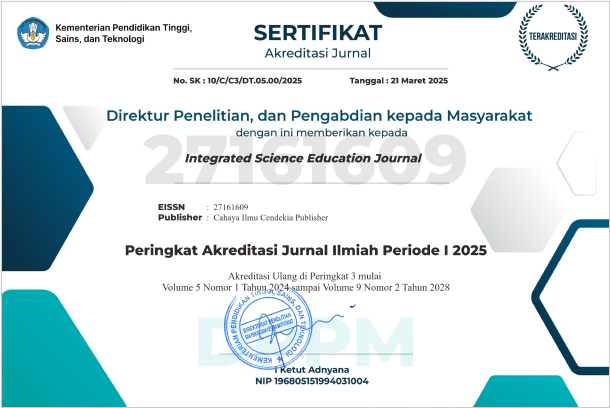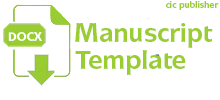Critical analysis of lecturer’s perception on integrating concepts of sustainability in university curricular
Abstract
Purpose of the study: The growing emphasis on incorporating sustainability concepts in tertiary education has lead higher education institutions in developing countries to infuse sustainability content into their curricula. The wider purpose of this study is to promote the integration of sustainability concepts within Sri Lankan Universities. The study uncovers and presents the perception of university academics on integrating sustainability in higher education.
Methodology: An online-survey was carried out in the month of January, 2019 at the University of Moratuwa, Sri Lanka across four faculties; engineering, architecture, information and technology and business. A descriptive analysis was employed to present the perceptions of the respondents according to different faculties. The obtained data were analyzed using Microsoft excel.
Main Findings: Results revealed, 46.93% have already integrated sustainability concepts while 59.18% are willing to integrate in the near future. 80% have perceived that university curriculum should improve, according to the country’s need while providing particular trainings. 60% felt that knowledge and skills in ICT should be developed and adequate human resources should be deployed prior to incorporate sustainability concepts.
Applications of this study: This study is aimed to identify models for mainstreaming sustainability concepts across the tertiary education in Sri Lanka.
Novelty/Originality of this study: analyzing the perception of university lecturers on incorporating sustainability concepts across the university curricular, has never conducted in a Sri Lankan university. This is manily conducted to identify the gaps pertaining on intergrating sustainability concepts across university curricular and to identify the barriers exciting for education for sustainable development in Sri Lankan context.
References
UN, “United Nations Conference on Environment and Development-AGENDA 21,” 1992, no. June.
T. Shelley, Learning for the future,United Nations Economic Commission for Europe Strategy for Education for Sustainable Development, vol. 26, no. 12. 2006.
O. Url and E. Uri, “Vare , Paul ORCID : 0000 0003 3182 9105 and Scott , William ( 2007 ) Learning for a Change : Exploring the Relationship Between Education and Sustainable Development . Journal of Education for Sustainable,” vol. 1, 2007.
UN, Shaping the Future We Want. 2014.
I. R. Abubakar, F. S. Al-shihri, and S. M. Ahmed, “Students ’ Assessment of Campus Sustainability at the University of Dammam , Saudi Arabia,” 2016.
M. Nejati and M. Nejati, “Assessment of sustainable university factors from the perspective of university students,” J. Clean. Prod., vol. 48, pp. 101–107, 2013.
G. Tuncer, “International Research in Geographical and Environmental Education University Students â€TM Perception on Sustainable Development : A Case Study from Turkey University Students ’ Perception on Sustainable Development : A Case Study from Turkey,” no. June 2013, pp. 37–41, 2008.
R. Drayson, E. Bone, J. Agombar, and S. Kemp, “Student attitudes towards and skills for sustainable development,” no. November, 2014.
T. Berglund, N. Gericke, and S. C. Rundgren, “Research in Science & Technological Education The implementation of education for sustainable development in Sweden : investigating the sustainability consciousness among upper secondary students,” no. February 2015, pp. 37–41, 2014.
R. Lozano, F. J. Lozano, K. Mulder, D. Huisingh, and T. Waas, “Advancing Higher Education for Sustainable Development : international insights and critical re fl ections,” vol. 48, pp. 3–9, 2013.
F. R. Figueredo and Y. Tsarenko, “Is ‘ being green ’ a determinant of participation in university sustainability initiatives ?,” 2013.
M. Katherine, R. Lozano, C. Noyes, and M. Rodgers, “Assessing curricula contribution to sustainability more holistically : Experiences from the integration of curricula assessment and students ’ perceptions at the Georgia Institute of Technology,” J. Clean. Prod., vol. 61, pp. 106–116, 2013.
Y.-C. J. Wu and J.-P. Shen, “Higher education for sustainable development: a systematic review,” 2015.
E. Chuvieco, M. Burgui-Burgui, E. V. Da Silva, K. Hussein, and K. Alkaabi, “Factors affecting environmental sustainability habits of university students: Intercomparison analysis in three countries (Spain, Brazil and UAE),” J. Clean. Prod., vol. 198, pp. 1372–1380, 2018.
M. Heyl, E. M. Díaz, and L. Cifuentes, “Environmental attitudes and behaviors of college students: a case study conducted at a chilean university,” Rev. Latinoam. Psicol., vol. 45, no. 3, p. 487, 2014.
A. R. Bielefeldt, “Incorporating a Sustainability Module into First-Year Courses for Civil and Environmental Engineering Students,” no. April, pp. 78–85, 2011.
G. Davis, “The role of case studies for integrating sustainable development into the education of engineers,” World Trans. Eng. Technol. Educ., vol. 5, no. 1, pp. 159–162, 2006.
P. Jones, C. J. Trier, and J. P. Richards, “Embedding Education for Sustainable Development in higher education : A case study examining common challenges and opportunities for undergraduate programmes,” vol. 47, no. 2008, pp. 341–350, 2014.
E. Bakaç, “Engineering Faculty Students’ Perceptions on Climate Change,” Environ. Ecol. Res., vol. 6, no. 4, pp. 240–247, 2018.
R. M. Brito, C. Rodríguez, J. L. Aparicio, J. Paolacci, M. L. Sampedro, and J. Beltrán, “Indicators of sustainability in educational practice: Perception of teachers and students of UAGro-Mexico,” Sustain., vol. 10, no. 10, 2018.
P. G. Watkins and J. Richters, “‘I’m telling you … the language barrier is the most, the biggest challenge’: Barriers to education among Karen refugee women in,” vol. 56, no. 2, pp. 126–141, 2012.
C. P. Akpan, “Lecturers’ perception of the Role of ICT in the Management of University Education for Sustainable Development in Nigeria,” Niger. J. Educ. Adm. Plan., vol. 8, no. 1, pp. 113–127, 2008.
G. E. Kiangi, “Computer education and human capacity building for Information Technology in Namibia,” Capacit. Build. IT Educ. Dev. Ctries., pp. 39–47, 1998.
G. Ssekakubo, H. Suleman, and G. Marsden, “Issues of Adoption : Have E-Learning Management Systems Fulfilled their Potential in Developing Countries ?,” 2011.
T. A. Drape, R. Rudd, M. Lopez, and D. Radford, “Challenges and Solutions to Higher Education Institutions in Africa,” Int. J. Educ., vol. 8, no. 1, p. 43, 2016.
Department of census and statistics, “ECONOMIC STATISTICS OF SRI LANKA,” 2018.
S. L. Ministry of education, “Education First Sri Lanka,” 2013.
S. L. Universrity Grants Commission, “University education in Sri Lanka,” 2018.
University Grants Commission, “University Admission in Sri Lanka,” 2018.
University Grants Commission, “Graduate Output, Sri Lanka,” 2018.
Youth policy Sri Lanka, “Components of Population Change , 2011-2017,” 2017.
University of Moratuwa, “Overview of the University,” 2019. [Online]. Available: https://www.mrt.ac.lk/web/. [Accessed: 27-Aug-2019].
D. Y. R. Dr. Y. Rajasekhar, “The Role of Information and Communication Technologies (ICTs) in Higher Education,” Int. J. Sci. Res., vol. 3, no. 3, pp. 83–85, 2012.
R. M. Gnanawasa and S. Lanka, “a Study of a Few Recognized Educational,” 2017.
P. Ekins and S. Simon, “Estimating sustainability gaps : methods and preliminary applications for the UK and the,” vol. 8009, no. 0, 2001.
K. W. Charu, “Journal of Professional Issues in Engineering Education and Practice, ASCE,” vol. 133, no. 3, pp. 188–191, 2007.
J. Fisher and I. Bonn, “Business sustainability and undergraduate management education : an Australian study,” pp. 563–571, 2011.
M. Petrini and M. Pozzebon, “Journal of Strategic Information Systems Managing sustainability with the support of business intelligence : Integrating socio-environmental indicators and organisational context,” J. Strateg. Inf. Syst., vol. 18, no. 4, pp. 178–191, 2009.
E. Sidiropoulos, “Education for sustainability in business education programs : a question of value,” J. Clean. Prod., vol. 85, pp. 472–487, 2014.
M. R. and U. S. Matthias Barth, Jasmin Godemann, “Developing key competencies for sustainable development in higher education,” Int. J. Sustain. High. Educ., 2010.
Copyright (c) 2020 Cahaya Ilmu Cendekia Publisher

This work is licensed under a Creative Commons Attribution-NonCommercial 4.0 International License.
Authors who publish with this journal agree to the following terms:
- Authors retain copyright and acknowledge that the Integrated Science Education Journal is the first publisher licensed under a Creative Commons Attribution 4.0 International License.
- Authors are able to enter into separate, additional contractual arrangements for the non-exclusive distribution of the journal's published version of the work (e.g., post it to an institutional repository or publish it in a book), with an acknowledgment of its initial publication in this journal.
- Authors are permitted and encouraged to post their work online (e.g., in institutional repositories or on their website) prior to and during the submission process, as it can lead to productive exchanges and earlier and greater citation of published work.







.png)
.png)






